What is Marine Conservation?
Marine Conservation or Ocean Conservation, is the protection, restoration and preservation of marine ecosystems, as a response to the negative environmental impact caused by humans.
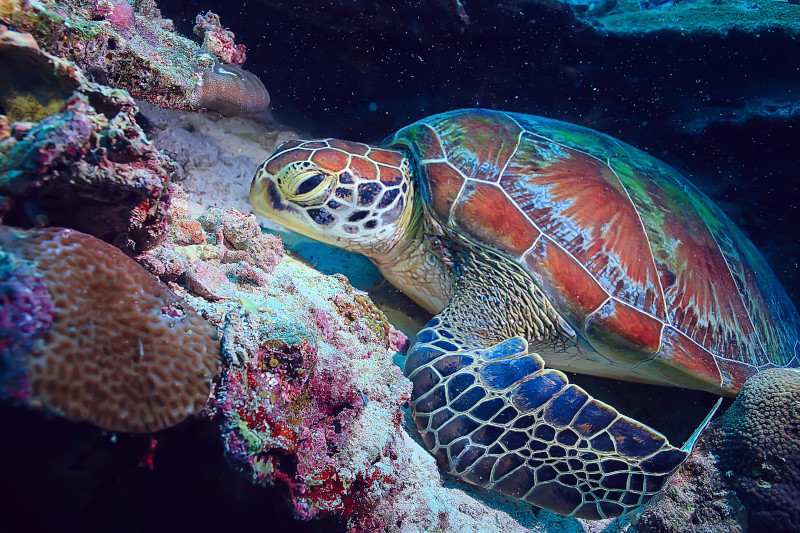
Did you know that the oceans are a fundamental piece for life on earth?
Yes, human beings are dependent, directly or indirectly, on the seas, oceans and the ecosystems that inhabit them.
Due of this fact, the theory of chaos and the butterfly effect applies quite well.
Moore sooner or later this things will have an impact on us:
- Disproportionate fishing
- Illegal hunting
- Pollution in our seas and oceans
In this article we share valuable information on ocean conservation, statistics, zones, and how to support ocean conservation.
Marine Conservation. Definition. What does it means?
Marine life conservation or ocean conservation is defined as efforts to care for and protect the ecosystems that inhabit the seas and oceans worldwide.
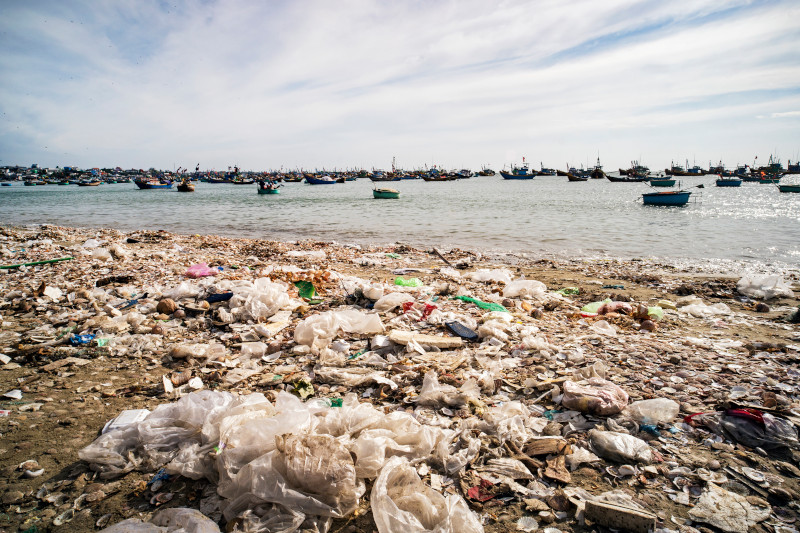
Ocean conservation has two main battle fronts:
- The mitigation of environmental impact activities carried out by human beings, which represent a threat to marine ecosystems.
- The protection and restoration of populations, spices and habitats.
Ocean conservation initiatives have a legal basis. These laws are created to support efforts to enforce conservation more effectively.
Some laws created for marine conservation, are for example the endangered species law, created in 1973 and which effectively protects more than 43 species.
Other laws such as the Marine Mammal Protection Law, created in 1974, restricts the actions of humans against this group of animals.
Why ocean conservation is important?
The oceans are much more important than we imagine. Our existence on earth literally depends on them.
More than 3 billion people depend on marine biodiversity and coastal ecosystems for their livelihoods.
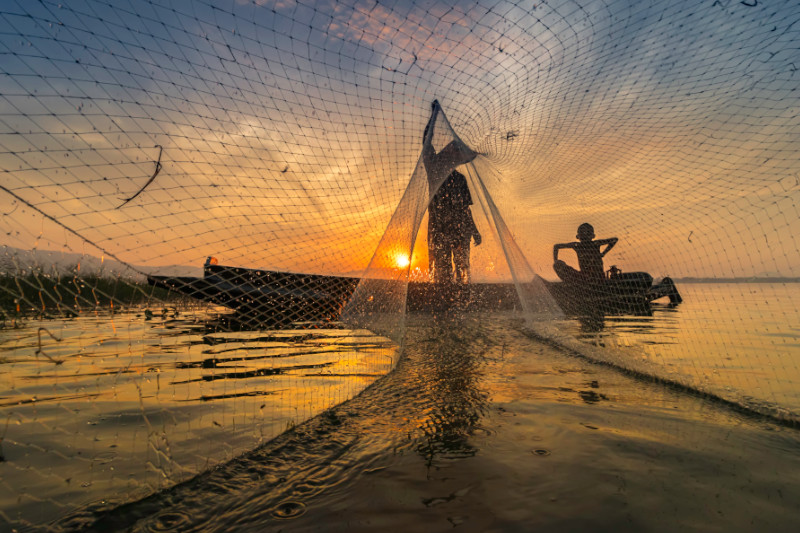
Due to the large amount of water they contain, the oceans and seas are the main regulators of climate on earth.
The oceans are also the main source of oxygen. Thanks to microorganisms such as phytoplankton, they produce between 50% and 85% of the oxygen that is released into the atmosphere each year.
Can you see why it is important to protect our oceans? For all these reasons, marine conservation is of vital importance.
We need to protect and preserve marine ecosystems, to ensure their existence for current and future generations. Simply because we depend on them.
Marine Conservation Areas
According to the International Union for Conservation of Nature (IUCN), a marine conservation area is “a clearly defined geographic space, recognized, dedicated and administered, through legal or other effective means, to achieve conservation to long-term nature with the ecosystem services and associated cultural values.
”Marine Protected Areas are sea areas specially dedicated to the protection and maintenance of the marine ecosystems that compose them.
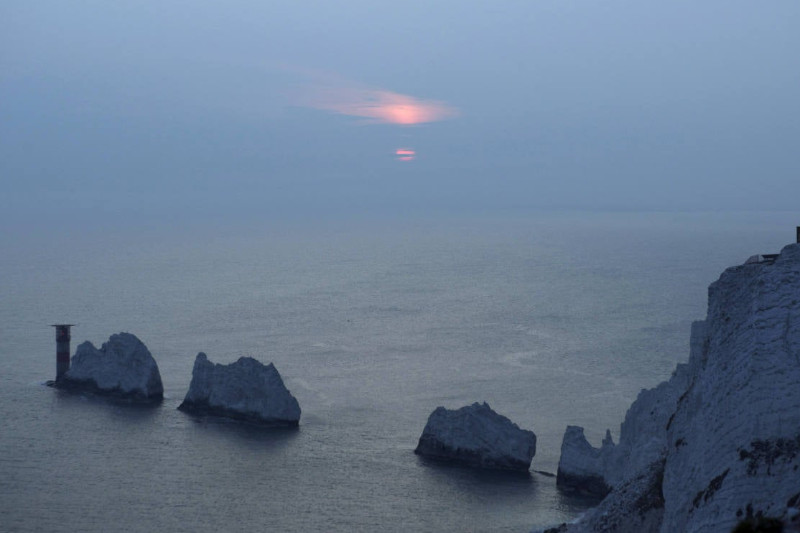
They are seas, oceans, estuaries and lakes where human activity is restricted or limited in order to guarantee its preservation and long-term existence.
Marine Conservation Areas seek to protect and perpetuate the natural resources that compose them.
Marine Conservation Zones in Costa Rica
In Costa Rica there are two very important marine conservation areas: Isla del Caño Biological Reserve and Isla del Coco National Park.
The first one is located in the southern Pacific of Costa Rica. It protects 5,800 marine hectares with a large number of coral formations.
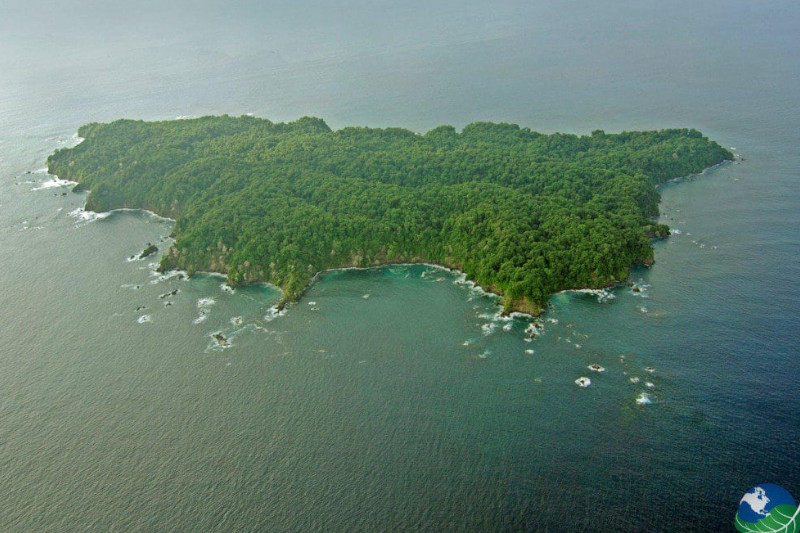
The second is located 532 km south of Costa Rica and protects 2,330 land hectares and 201,153 marine hectares.
Cocos Island is so spectacular that it has been declared a World Heritage Site by UNESCO.
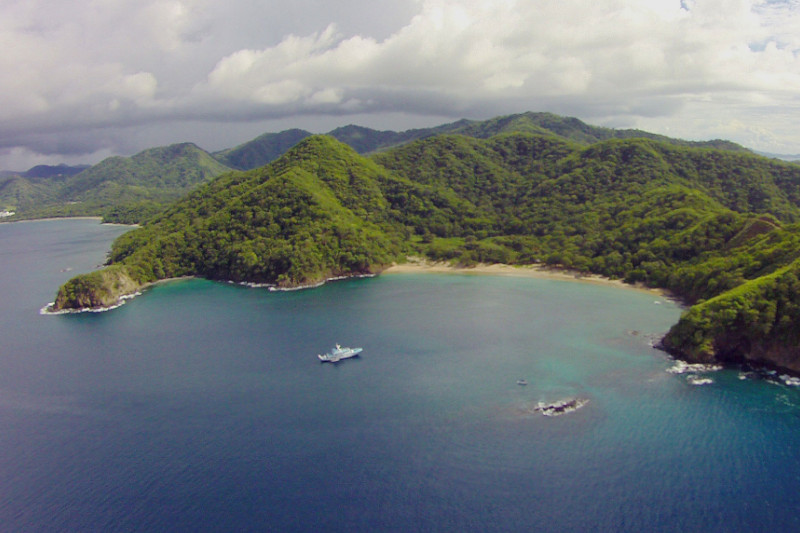
Both Islands, located in the Pacific, are a clear example of the effectiveness of the Marine Conservation Areas in Costa Rica.
Costa Rica has around 37 protected areas. Most of them are in the terrestrial area and some of them are marine conservation areas.
Below we share a complete map of Costa Rica with its protected areas.
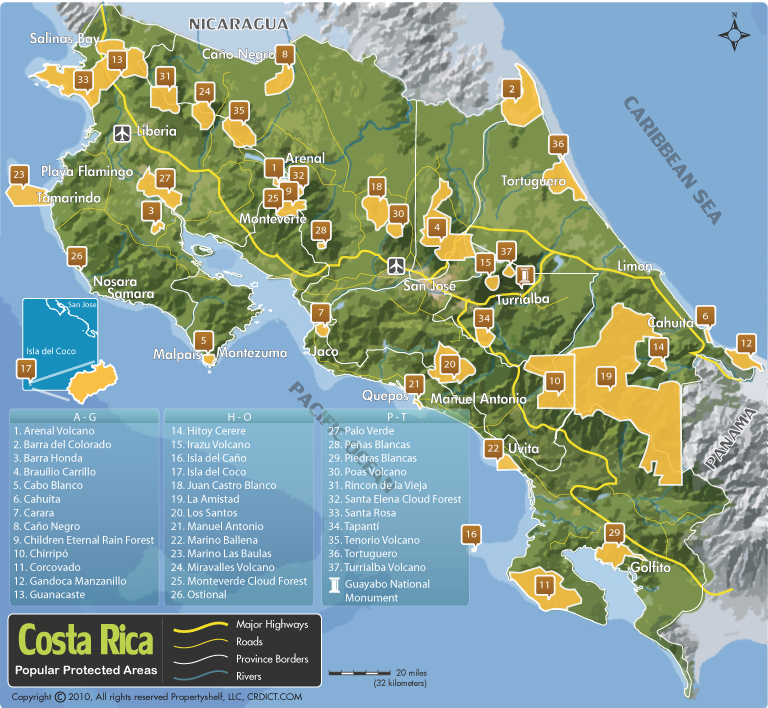
Ocean Conservation Facts
Marine Conservation has great challenges ahead. One of the main and most difficult to solve is pollution due to plastic.
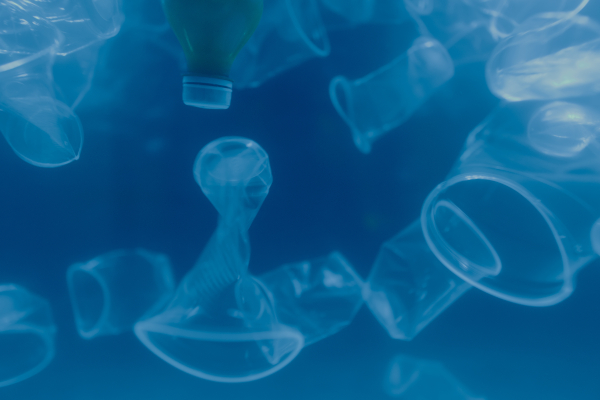
Here are 10 facts about marine pollution that seem fictitious, but they are not.
- Plastic kills 100 million marine animals every year.
- In the North Pacific, fish ingest about 14,000 tons of plastic each year.
- The Pacific Ocean garbage patch is the size of Texas.
- In the oceans pollution rank, China is the first
- 70% of the waste that reaches the sea sinks in the ecosystem, 15% floats and 15% reaches the beaches.
- There are an estimated 5.25 trillion pieces of plastic waste in our oceans. 269,000 tons float, 4,000 million microfibers per km² live below the surface.
- The ocean receives 236,000 tons of plastic each year, which marine creatures mistake for food.
- There are records of more than 100 nuclear explosion tests in our oceans. This is just between the years 1950 and 2000.
- 90% of the global waste that reaches the oceans comes from only 10 rivers
- The most worrying fact is that this data tends to increase as the years go by and the efforts to counteract it seem not to be enough.
Efforts and Projects in Marine Conservation Costa Rica
After reading some of the statistics, our motivation to do something for the environment may be seriously affected.
However, the sum of many efforts can make a big difference.
Marine conservation focuses on activities that have a positive impact on the maintenance of marine ecosystems.
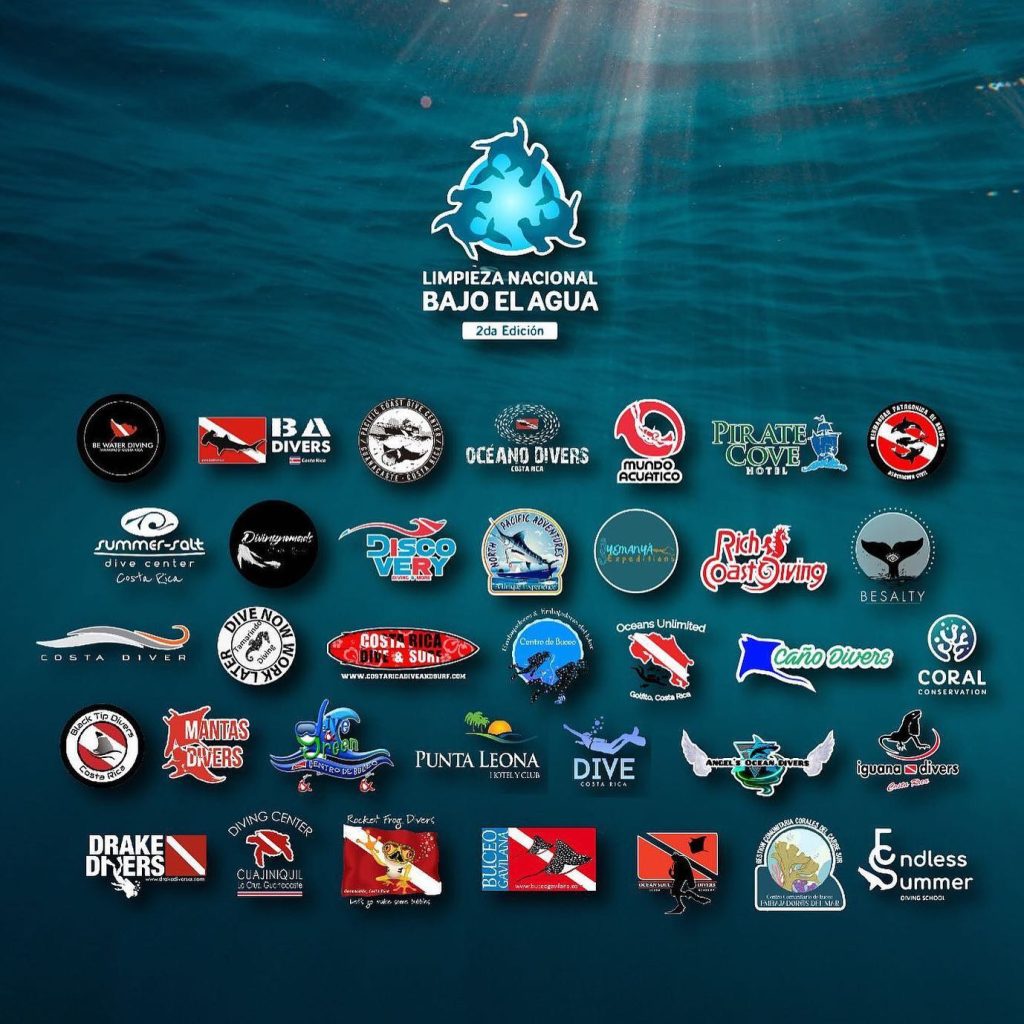
These activities are sponsored in many cases by companies and organizations that have recognized their responsibility in sustainable development and contribute in various ways.
Ocean conservation projects are constantly being developed in Costa Rica. Due of this, some are in constant activity, while others take place once or several times a year.
Here is a list of some of the ocean conservation projects in Costa Rica:
Ocean Conservation Issues
Ocean conservation has great challenges ahead. Some of the main current and future problems are as follows:
- Increase in the temperature of the oceans, due to climate change.
- Sea level rise: Mainly due to the melting of polar ice.
- Change in the pH of the water: In the oceans the water is becoming more acidic, which directly affects the life of various species.
- Illegal fishing: Especially trawling, which destroys the marine ecosystem.
- Establishment of new marine protection areas: Protecting ocean waters is complicated, mainly due to the economic interests of those who exploit them.
- Illegal and excessive whaling
- Coral bleaching
- Invasive species: It represents a huge challenge since, as they do not belong to the original habitat, they usually do not have predators that regulate their quantity.
- Plastic: One of the biggest challenges in ocean pollution.
- Shark Finning: A practice considered illegal in many countries but still practiced clandestinely.
- Oil spills: They represent a gigantic impact on ecosystems and are often public opinion do not know the truth becasue of large corporations.
- Protection of endangered species.
What is a Marine Conservation Center?
A Marine Conservation Center, also known as an Ocean Conservation Center, is a non-profit organization that exclusively focus on the protection of marine ecosystems.
Marine conservation centers place a special emphasis on education. For this reason they also have the name of Marine Education Centers.
Conservation Centers often encourage the participation of local people, to reverse the degradation of the oceans and cause a local impact.
In Costa Rica, there are some Conservation Centers and Conservation Organizations that develop activities and projects for marine conservation.
Some of them are, for example:
Pelagos: They carry out several projects. Its purpose is
Raising Coral Costa Rica: They work on the restoration of Corals using propagation techniques.
How to Help?
After learning a little more about ocean conservation and the great challenges we face, you may wonder how to be part of these initiatives.
Would you like to join? Here are three very practical ways you can do it.
Changing the lifestyle:
The main change begins with ourselves.
When we really understand the negative impact we cause to the oceans, we begin to consider our lifestyle.
Suddenly, we started to use and consume less plastic, to worry about using really biodegradable products and to reduce CO2 consumption.
It might seems to be small, but, if all humans being to do something, the result would be very great.
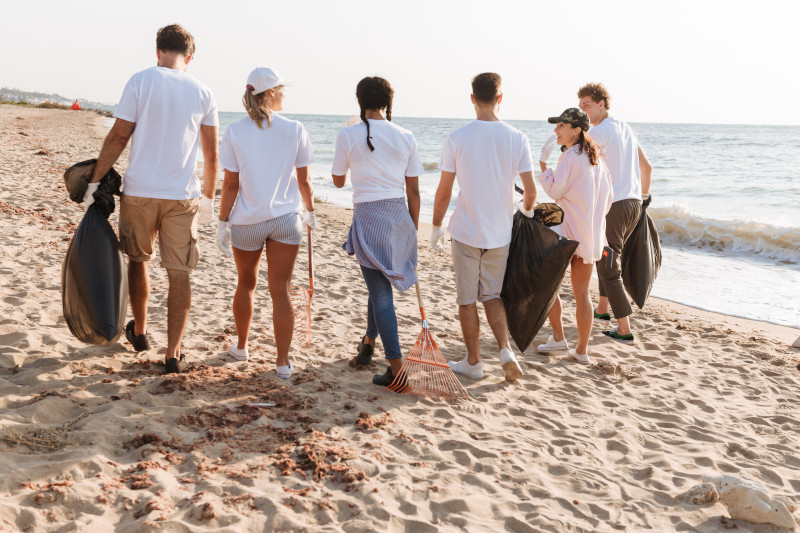
Donating to conservation organizations:
The vast majority of conservation centers and conservation organizations in Costa Rica and the world obtain their resources from donations.
You can make a big difference whenever you decide to contribute financially to some of our existing marine conservation projects.
Joining a project
There are a large number of conservation projects in the world. In Costa Rica there are several organizations that lead conservation projects in which you could be part. Volunteers are always welcome!
If you want more information, want to donate or join a conservation project, send us a message.
In Costa Rica Dive and Surf, we work along with several conservation organizations. Therefore we collaborate with them in the protection of the ocean.
We will help you find what you are looking for.
